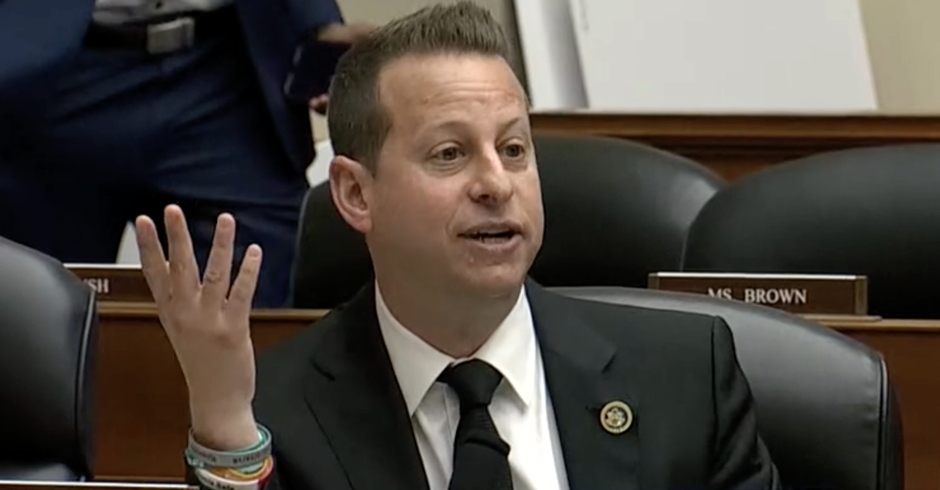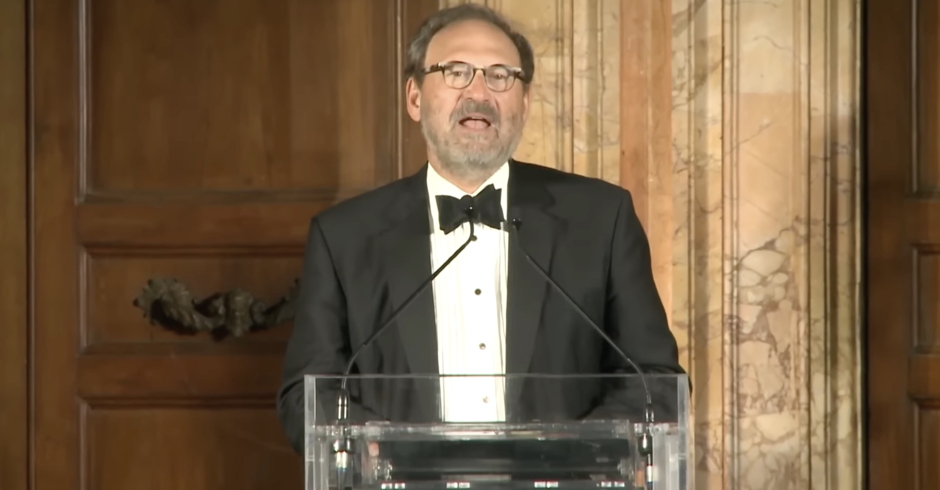The Irrepressible Frank Kameny (In the words of Randy Shilts)
On October 12, 2011, 86 year-old Frank Kameny died. It cannot be overstated what an incredibly brave man he was, and the extent to which the modern gay rights movement in the United States rests firmly on his shoulders.
In 1993, Steve Campbell and I had the pleasure of interviewing Mr. Kameny on video in his home in Washington DC (which I will optimize for the web and post in days to come), for the CD ROM version of “Conduct Unbecoming: Gays & Lesbians in the U.S. Military. Randy Shilts’ epic masterpiece of investigative journalism remains the ultimate history of gays in the military up until Don’t Ask, Don’t Tell.
On July 14, 2011, California Governor Jerry Brown signed into law the Fair, Accurate, Inclusive and Respectful (FAIR) Education Act, authored by Senator Mark Leno, to amend the Education Code to include social sciences instruction on the contributions of lesbian, gay, bisexual and transgender (LGBT) people. Despite the hysterical outcry from homophobes and those who would deny historical accuracy (much like they do science), Frank Kameny’s contributions to civil society, not just gay rights, should be taught and acknowledged with the same respect and accuracy as Malcolm X or Susan B. Anthony.
Frank Kamney was an activist’s activist. The Thomas Jefferson of Gay Liberation. In the excerpts below, Shilts captures just a glimpse of who Frank Kameny was, what he stood for, and what he achieved.Â
Clinton Fein
UNTIL 1959, DR. FRANKLIN KAMENY had been a happy, eccentric scientist performing his tasks in observational astronomy for the Army Map Service. He had a doctorate in astronomy from Harvard, and everyone agreed that he was very good at what he did, but this made no difference when his boss called him in and told him he was fired because he was a homosexual, since under the rules of the Civil Service Commission no homosexual could work for the United States government. Kameny had never demonstrated much of a political bent in the past, but as a man of science he was devoted to reason and could not fathom how his behavior in the privacy of his bedroom affected his job as a government astronomer. An intellectual, he was also not about to suffer fools gladly. Rather than quietly accept the termination and seek employment elsewhere, he decided to fight.
For the next two years, Kameny labored over his petition for certiorari, or a request of review by the Supreme Court. He developed legal arguments against the government’s action and formulated his own ideas about what would later be called gay liberation. In March 1961, when the high court turned down his petition, he began to seek out organizations championing homosexual rights. He found only five or six of them in the country. He soon set up his own group, the Washington chapter of the Mattachine Society. From that moment on, he had three goals: to end the Civil Service’s ban on gays working for the government, to end discrimination against homosexuals seeking security clearances, and to end the exclusion of gays from the military.
Â
BY THE TIME TECHNICAL Sergeant Leonard Matlovich appeared at Frank Kameny’s two-story brick house a half block from the Potomac River, he had already confided that he was indeed the “friend†for whom he had placed the phone call several months earlier. Kameny’s enthusiasm built as Matlovich recounted his military resume. The man held the Bronze Star, a Purple Heart, two Air Force commendation medals, and a recent Air Force Meritorious Service Medal, had done three tours in Vietnam, and had altogether eleven years of unblemished service. Central casting could not have provided a better test case to take to the Supreme Court. Kameny, however, was no lawyer. Fortunately, a former Air Force lawyer had already volunteered for the job.
Â
Matlovich’s decision to fight the military’s exclusion of gays came as he settled into a new routine within the huge array of military bases around the Norfolk area, the region locals called Hampton Roads. At night military men with their telltale short haircuts and without the longish sideburns fashionable in the posthippie era packed the local gay bars. For the first time, Matlovich could socialize with other gay military people, but when he spoke of challenging the regulations he found that such talk genuinely frightened many of his new friends.
Matlovich would not be deterred, however, even though he dreaded both the moment when he would tell the Air Force he was gay and the inevitable aftermath of telling his parents. Still, he felt he had no other choice. For years, he had spoken about the need for the United States to attain justice and equality for all its citizens. Now, he had actually begun to believe it.
Â
With Washington activist Frank Kameny, [Bruce] Voeller aggressively lobbied both the American Psychiatric Association and the federal Civil Service Commission to make what would be historic changes in their antigay policies. He also began cultivating relationships with national news organizations, believing media exposure, not radical confrontations, was the better means of educating the country about gay injustices.
Â

Â
MEMORIAL DAY, 1980
TOMB OF THE UNKNOWN SOLDIER
ARLINGTON NATIONAL CEMETERY
ARLINGTON, VIRGINIA
GAY ORGANIZER FRANK KAMENY had made it clear that if the Army did not grant permission to lay his wreath on Memorial Day, he would do it, anyway–even if he got shot in the process. But it was White House intervention and Allison Thomas’s persistence that finally moved the Army to accede just days before the scheduled ceremonies.
On the morning of the wreath laying, three high-ranking civilian officials from the Department of the Army stood at the ready to make sure the gay activists did not instigate a subversive act, and a squad of armed military police waited out of sight in the tunnel complex beneath the tomb. At the appointed time, Kameny and a handful of other members of the Gay Activists Alliance stepped solemnly down the wide marble staircase to the broad plaza where the Tomb of the Unknown Soldier sits, its pilastered facade facing Washington. From the tunnels below the staircase, an honor guard in Army dress blues emerged with the wreath into the plaza.
This was not a great turning point in the history of the United States, Kameny knew, but it was a small victory. He had known gay men who had died for their country in World War II and in the Korean and Vietnam wars, and he would be damned if they would be denied this honor any longer.
Being a stickler for detail, however, Kameny also noticed the difference between the Gay Activists Alliance commemoration and the others.
While every other group was announced before it placed its wreaths, no announcement was made for the gay activists. And Kameny noticed someone had placed a spray of flower petals to cover the word Gay, so their identifying ribbon read Activists Alliance. And although the wreaths remained on the tomb until it was time for the next ceremony, the gay wreath was gone by the time Kameny and his friends reached the top of the stairs on their way out.
Not long afterward, Kameny received a phone call from a stranger who asked whether he and his lover might pay Frank a visit. As the grand old man of Washington’s gay community, Frank was accustomed to such cryptic requests, and when the couple arrived Kameny recognized one of them as part of the Old Guard that had handled the ceremonies that day. He was here to thank Kameny for the wreath. There were a lot of people in uniform that day, he said, who appreciated what Frank had done.
Copyright 1995-2011 Innoventions, Inc. All rights reserved. Copyright 1993 Randy Shilts. Copyright 1994 Estate of Randy Shilts. All rights reserved. Published by arrangement with St. Martin’s Press.
 Clinton Fein is an internationally acclaimed author, artist, and First Amendment activist, best-​known for his 1997 First Amendment Supreme Court victory against United States Attorney General Janet Reno. Fein has also gained international recognition for his Annoy​.com site, and for his work as a political artist. Fein is on the Board of Directors of the First Amendment Project, “a nonprofit advocacy organization dedicated to protecting and promoting freedom of information, expression, and petition.†Fein’s political and privacy activism have been widely covered around the world. His work also led him to be nominated for a 2001 PEN/Newman’s Own First Amendment Award.
Clinton Fein is an internationally acclaimed author, artist, and First Amendment activist, best-​known for his 1997 First Amendment Supreme Court victory against United States Attorney General Janet Reno. Fein has also gained international recognition for his Annoy​.com site, and for his work as a political artist. Fein is on the Board of Directors of the First Amendment Project, “a nonprofit advocacy organization dedicated to protecting and promoting freedom of information, expression, and petition.†Fein’s political and privacy activism have been widely covered around the world. His work also led him to be nominated for a 2001 PEN/Newman’s Own First Amendment Award.

Enjoy this piece?
… then let us make a small request. The New Civil Rights Movement depends on readers like you to meet our ongoing expenses and continue producing quality progressive journalism. Three Silicon Valley giants consume 70 percent of all online advertising dollars, so we need your help to continue doing what we do.
NCRM is independent. You won’t find mainstream media bias here. From unflinching coverage of religious extremism, to spotlighting efforts to roll back our rights, NCRM continues to speak truth to power. America needs independent voices like NCRM to be sure no one is forgotten.
Every reader contribution, whatever the amount, makes a tremendous difference. Help ensure NCRM remains independent long into the future. Support progressive journalism with a one-time contribution to NCRM, or click here to become a subscriber. Thank you. Click here to donate by check.
 |






















